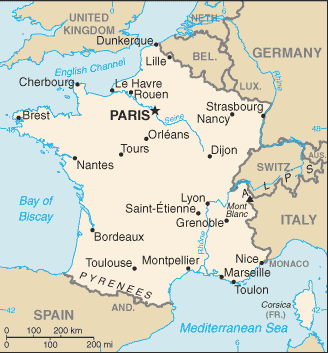Drug policy
- The Government Plan for Combating Drugs and Addictive Behaviours 2013-17 addresses the use of illicit and licit substances (narcotics, alcohol, tobacco, psychotropic medicines and new synthetic products), as well as non-substance-related addictive behaviours (gambling, gaming, doping).
- It has three main priorities: (i) promoting prevention, care and risk reduction; (ii) stepping up the fight against trafficking; (iii) improving the application of the law; (iv) basing policies for combating drugs and addictive behaviours on research and evaluation studies; and (v) reinforcing coordination at the national and international levels.
Treatment and Recovery Services
- Treatment for drug users is the responsibility of the regional and local authorities.
- Drug treatment has been financed by the social security system since 2003.
- Two systems are involved in drug treatment: a specialised addiction treatment system and a general care system.
- Most of the 100 sub-regional administrative areas have at least one CSAPA: centres managed by NGOs that provide outpatient and inpatient care, as well as care for prison inmates. In such settings, both pharmacologically assisted and psychosocial treatments are provided.
- There are also eight ‘drug-free’ therapeutic communities. These operate separately from CSAPAs.
- Since 2005, more than 500 services for young drug users have been established. These provide early intervention and psychological outpatient care.
- OST has been the main treatment for opioid users for the last 20 or so years.
- Methadone and high-dose buprenorphine (HDB) are used for OST. In
rare cases, morphine sulphate is used. - GPs are heavily involved in HDB and methadone treatment. However, methadone treatment can only be started in specialised centres or in hospitals. Currently, there is debate about this restriction.
- The Government Plan for Combating Drugs and Addictive Behaviours 2013-17 addresses the use of illicit and licit substances (narcotics, alcohol, tobacco, psychotropic medicines and new synthetic products), as well as non-substance-related addictive behaviours (gambling, gaming, doping).
- It has three main priorities: (i) promoting prevention, care and risk reduction; (ii) stepping up the fight against trafficking; (iii) improving the application of the law; (iv) basing policies for combating drugs and addictive behaviours on research and evaluation studies; and (v) reinforcing coordination at the national and international levels.
Prevention Services
- The French prevention policy encompasses all psychoactive substances, both illicit and licit, and other forms of addictive behaviours.
- It aims to prevent experimentation, delay it, or prevent and limit the use of these substances.
- Prevention interventions encompass a wide range of approaches, including environmental and selective, which are complementary.
- The current French Government anti-drug plan priorities drug use prevention among young people, especially those in contact with a juvenile court system; pregnant women and female drug users; and people who are geographically or socially marginalised from the care system.
- Environmental strategies on alcohol and tobacco are well developed and have substantial political support.
- Universal prevention is mostly carried out in secondary schools. School communities are involved in the coordination and implementation. Outsider actors, such as NGOs or law enforcement, contribute where required.
- The National Institute for Prevention and Health Education (INPES) issued best practice guidelines for addressing health and risky behaviours in school settings. Use is encouraged but not compulsory.
- The main focus of the school-based prevention activities is to develop students’ individual and social skills, enabling them to resist drug use.
- Drug prevention is also recommended for secondary and higher educational settings.
- Youth counselling centres carry out community-based prevention.
- Educators working at recreational centres for children and teenagers are trained to address addictive behaviours and risky sexual practices through raising awareness.
- Prevention initiatives for psychoactive substance use in recreational settings are used in some large cities and sometimes implemented at large music festivals or sporting events.
- Selective prevention is mainly the responsibility of specialised NGOs commonly operating outside of the school setting.
- It is rare for law enforcement services to deliver selective prevention activities.
